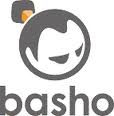Tony Falco
COO of Basho Technologies
Basho Technologies

Tony is the COO of Basho Technologies, makers of the distributed data store, Riak. He manages the engineering, service, marketing, and sales teams. He co-founded Basho Technologies with Earl Galleher in 2007 intent on solving a very different problem than distributed data storage. Luckily, along came Justin Sheehy, who introduced Erlang into the picture, and Andy Gross, who brought a 1000-line implementation of a dynamo data store written in Erlang to his job interview. It didn't work.
Before Basho, Tony spent a year in New Zealand and most of another in Hawaii, vowing to never return to technology. Prior to that, Tony was an executive at Akamai Technologies and Digex, a hosting service provider that is now part of Verizon Business, the enterprise services group.
Before Basho, Tony spent a year in New Zealand and most of another in Hawaii, vowing to never return to technology. Prior to that, Tony was an executive at Akamai Technologies and Digex, a hosting service provider that is now part of Verizon Business, the enterprise services group.

Tony Falco is Giving the Following Talks
"Erlang, huh? Isn't that Swedish for 'You're screwed?'" - Myths and Facts About Erlang and Startups
Since Basho Technologies was founded back in mid-2007, we have been the recipients of a fair amount of (often unsolicited) advice regarding our business. No single facet of our business has prompted more commentary than the early decision to build our products using predominantly Erlang. From hiring to funding to adoption, otherwise smart people have predicted that Erlang would prove to be an Achilles heel for Basho. Not a single person outside the Erlang community -- with one notable exception -- saw Erlang as a strategic advantage.
In this talk, I will objectively consider the challenges and advantages we have faced over the past four years. I will share lessons learned seeking funding, recruiting, bui lding a Riak-oriented community, and driving adoption inside some of the world's largest enterprises. I will also talk about overcoming challenges our advocates have faced getting Erlang-based initiatives adopted in the enterprise.
Finally, I will discuss the role the Erlang community has played in our success and what I think the future can be for commercial and open-source projects that happen to be built on "that Swedish boutique language."
In this talk, I will objectively consider the challenges and advantages we have faced over the past four years. I will share lessons learned seeking funding, recruiting, bui lding a Riak-oriented community, and driving adoption inside some of the world's largest enterprises. I will also talk about overcoming challenges our advocates have faced getting Erlang-based initiatives adopted in the enterprise.
Finally, I will discuss the role the Erlang community has played in our success and what I think the future can be for commercial and open-source projects that happen to be built on "that Swedish boutique language."
